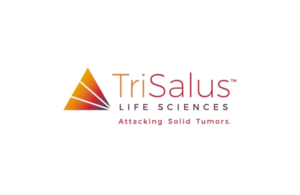 TriSalus Life Sciences announced today that it enrolled the first patient in its clinical study of a treatment for metastatic uveal melanoma.
TriSalus Life Sciences announced today that it enrolled the first patient in its clinical study of a treatment for metastatic uveal melanoma.
The PERIO-01 clinical study evaluates SD-101, an investigational toll-like receptor 9 (TLR9) agonist in adults with metastatic uveal melanoma through intravascular administration into uveal melanoma liver metastasis lesions in combination with checkpoint inhibitors using the novel pressure-enabled drug delivery (PEDD) approach.
By infusing SD-101 directly to the site of the disease, TriSalus aims to enhance the drug’s therapeutic index, increase anti-tumor immune activity intended to slow tumor progression and restore, enable or improve responses to immunotherapies including checkpoint inhibitors for the treatment of liver metastases, according to a news release.
TriSalus’ TriNav infusion system, an FDA-cleared platform used for the PEDD approach, has the capabilities to overcome the inherent intratumoral pressure of solid tumors and will be used for the intravascular delivery of SD-101, the company said.
Across multiple centers in the U.S., the study will enroll up to 52 patients in phase 1. Dr. Sapna Patel, associate professor of melanoma medical oncology at the University of Texas MD Anderson Cancer Center, will be the principal investigator for the trial.
“The initiation of this study represents a significant milestone for TriSalus, as it marks the first program from TriSalus’ platform aimed at improving patient outcomes in liver and pancreatic cancer by delivering SD-101, our TLR9 agonist, directly to the site of disease via our novel drug delivery technology,” TriSalus Chief Medical Officer Dr. Steven Katz said in the release. “SD-101 is designed to activate the patient’s own immune cells within the tumor to overcome immunosuppression. We believe that, by combining SD-101 delivered via PEDD with systemic checkpoint inhibition, there is the potential to overcome the specific immunological pathways in the liver that cause treatment failure.”
“The liver is notoriously a challenging organ to treat effectively, due in part to a uniquely immunosuppressive environment. This trial will allow us the opportunity to investigate the promise of TriSalus’ unique combination of investigational immuno-oncology agents and PEDD technology. We are eager to advance innovative treatment options to improve clinical outcomes for patients with limited therapeutic options. Importantly, our approach with SD-101 and PEDD represents a therapeutic platform that we will apply across numerous indications within the liver and pancreas.”

